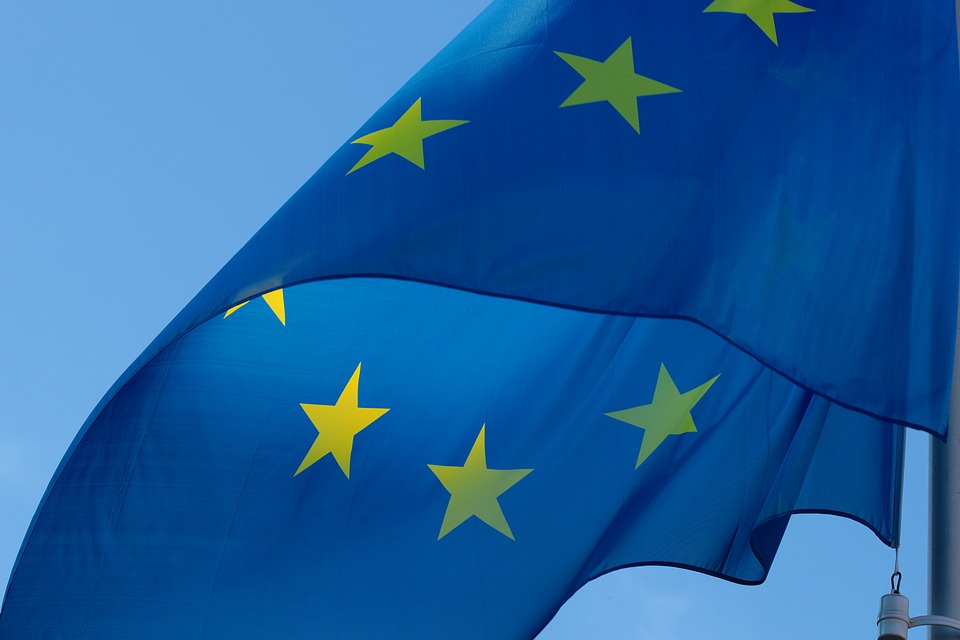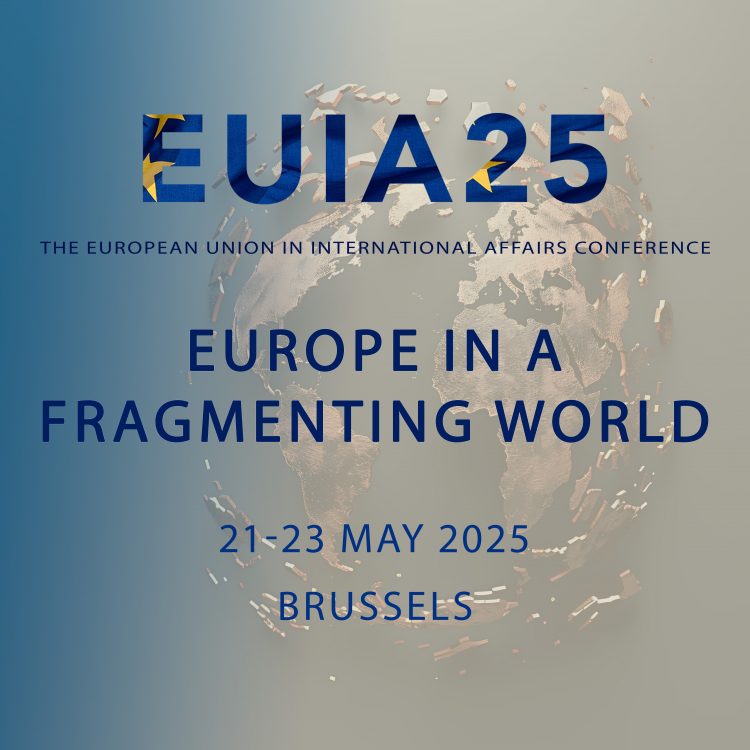 Ramona Coman writes about the constitutionalisation of European values and recent debates about how to safeguard them at the EU level. Does the EU have the authority to protect these values? Is Article 7 an appropriate mechanism, given that it provides for the insulation of one Member State from the rest of the Union, rather than for a solution to prevent a breach of common values? What are the new mechanisms and tools established in order to safeguard the EU’s values at the supranational level?
Ramona Coman writes about the constitutionalisation of European values and recent debates about how to safeguard them at the EU level. Does the EU have the authority to protect these values? Is Article 7 an appropriate mechanism, given that it provides for the insulation of one Member State from the rest of the Union, rather than for a solution to prevent a breach of common values? What are the new mechanisms and tools established in order to safeguard the EU’s values at the supranational level?
Over the past few decades, EU institutional actors have had to deal with a series of situations which made headlines for their potential to undermine both the quality of democracy within the European Union (EU) and European values. In 2011, the European Commission conducted an inquiry into the reforms adopted by the Hungarian government led by Viktor Orbán. A similar process was initiated in 2015 in relation to the judicial reforms launched by the Law and Justice government in Poland.
On European Values at the Supranational Level
In Europe, the debate about values, standards, norms and principles attracted a lot of political attention at the end of the Cold War. The political changes in the international order in the 1990s led several international organizations including the EU to rethink their raison d’être and develop a new rhetoric with regard to their scope and aims. Hence, on the European continent, the Council of Europe and the EU have been particularly keen to articulate their support for democratic values. The prospect of enlarging the EU to include the former communist countries in the 1990s strengthened the idea that the EU has an obligation to promote democracy through its policies, both internally and externally. On the eve of enlargement and after the rejection of the Maastricht Treaty, the quest for legitimacy became a matter of political concern and a topic of vivid academic debate, in particular since the attitudes towards the integration process moved away from a significant “permissive consensus” towards a “constraining dissent”. As Nicolaidis argued (2012: 271), the “people-as-citizens” entered the scene of European politics with a more public and explicit engagement with the democratic question. Member States responded to these preoccupations by making significant revisions to the treaties on which European integration was based. This in turn altered the basis of both internal and external policies.
Both the Maastricht Treaty and the debates about the elaboration of a Constitution for Europe aspired to enhance the emerging political identity of a unified Europe (Magnette and Nicolaidis 2004). The evolution of the integration process towards a more political entity placed the question of values at the centre. As such, the Maastricht Treaty was intended to democratise the EU and take a step towards “an ever closer Union”. Later, the Treaty of Amsterdam represented a step forward on several substantive issues. Instead of confirming “the democratic character of the system of government of the Member States” as in the Maastricht Treaty, the Treaty of Amsterdam states that the EU is vested with its own principles and values. For the first time, reference to common principles was made in the body of the treaties rather than in their preambles. Hence, Article 2 of the Treaty on European Union (TEU) stipulates that the EU is founded on the principlesof liberty, democracy, respect for human rights and fundamental freedoms, and the rule of law, principles which are common to the Member States. By incorporating these principles in the treaties, the EU was firmly committed to their preservation inside its own legal order as well as inside the national legal orders of its Member States. Adherence to these principles was a condition of EU membership. In addition, Article 7 allowed for sanctions against Member States in the case of a serious and persistent breach of the principles mentioned in Article 2. The process of drafting a Constitution for Europe prolonged the debates on the common principles, but referred to them in terms of “values”, an expression which was maintained in the Lisbon Treaty. Article 7 reiterates that the EU is founded on the values of respect for human dignity, freedom, democracy, equality, the rule of law and respect for human rights, including the rights of persons belonging to minorities.
How to Safeguard Values at the European Level?
In recent years, a growing consensus has arisen at the EU level that current institutional arrangements established to safeguard European values are dysfunctional. In 2011, the revision of the Hungarian Constitution and the media laws adopted by the government led by Viktor Orbán gave rise to a series of debates about the weakness of the applicable European legal framework when one Member State put the EU’s values at risk. Fidesz’s attempts to adopt a new Constitution and implement cardinal laws along with controversial institutional, cultural, religious, moral and socio-economic policies made headlines at the international level. Critics saw the measures promoted by Fidesz as dangerous deviations from democratic norms and EU treaties. In addition, the attempts by the Hungarian government to impose governmental control over institutions whose independence is protected by EU treaties and to empower political institutions at the expense of the judiciary were considered to be threats to EU’s values.
These domestic reforms attracted intense media coverage and contributed to a perception that EU institutions in general and the European Commission in particular were not expressly given clear competencies to deal with changes in the constitutional order of its member states. In 2012, the Commission President, José Manuel Barroso, and Viviane Reding, the Commissioner in charge of Justice, Fundamental Rights and Citizenship, deplored the “rule of law crisis”. Addressing the European Parliament (EP) in September 2012, Viviane Reding declared: “we face a Copenhagen dilemma. We are very strict on the Copenhagen criteria, notably on the rule of law in the accession process of a new Member State but, once this Member State has joined the EU, we appear not to have any instrument to see whether the rule of law and the independence of the judiciary still command respect”.
Acknowledging the limitations of the applicable legal framework to ensure an effective response to threats to the common values enshrined in the treaties, in 2013 Member States and representatives of the EP asked the College of Commissioners to shed more light on this matter. In a letter addressed to the President of the European Commission, the Foreign Ministers of Denmark, Germany, the Netherlands and Finland declared that “the EU must be extremely watchful” whenever these values “are put at risk anywhere within its borders”, and called for a “new and more effective mechanism to safeguard [those] values in Member States”. Several Member States called on the Commission to present a communication on how to improve the monitoring of Member States’ respect for the rule of law at the EU level. Accordingly, in 2013, the European Council invited the Commission to initiate a broad public consultation with governments, public institutions, civil society and experts to tackle this issue. Academics, think tanks, international NGOs and professional associations asked the Commission to take action and identify possible new institutional arrangements. In search of increased legitimacy and adequate resources to deal with any future rule of law crisis, the European Commission organized a series of conferences and forums, such as Les assises de la justice, in November 2013. This event attracted 700 participants. About 100 organizations representing Member States, NGOs, professional associations, think tanks and academics contributed to the normative discussion on the rule of law in the EU, and proposed concrete solutions to safeguard this value at the supranational level.
The debates offered a mix of recommendations, alternating between politically ambitious proposals and legally feasible solutions.
- There were ambitious solutions requiring the revision of the treaties and the creation of new legislation at the EU level in order to strengthen both the input and output legitimacy of the EU as a whole;
- Another set of proposals – pretending to be less ambitious and more realistic – put forward the need to strengthen the EU’s throughput legitimacy, that is, the cooperation between the European Commission, the European agencies and a series of European networks with experience in promoting European values abroad.
- Finally, it was suggested that the European Commission’s cooperation with other international organisations and bodies should be strengthened. This solution presented a significant advantage in that no additional measures would need to be taken at the EU level.
Faced with these solutions, the choice appeared to be self-evident. As the Council’s Legal Service acknowledged, there was “no legal basis in the Treaties empowering the institutions to create a new supervision mechanism of the respect of the rule of law by the Member States, additional to what is laid down in Article 7 TEU” (Council 15206/14). The Legal Service of the Council therefore recommended that the Member States set up a mechanism based on an inter-governmental agreement, potentially involving the institutions for some tasks. In the end, the context did not favour the empowerment of EU institutions. In the capitals of EU Member States, the cooperation of the Commission with other international organisations and bodies was by far the most popular solution suggested in order to monitor and evaluate the commitment of individual Member States with the rule of law. For example, Estonia’s representatives emphasized that they would not support the creation of a rule of law mechanism which would require the amendment of the treaties in order to expand EU institutions’ competences (Estonia’s contribution to the Assises de la Justice). In the same vein, Poland’s representatives argued that ‘the EU should make the most of its existing powers’. Similarly, Austria, Ireland and Slovenia’s representatives emphasized that the European Commission should avoid duplicating the work of other international organizations, like the Council of Europe. Several Member States declared that ‘it is not appropriate to take much effort simply in order to reinvent the wheel’. Hence, a strong consensus has emerged within the Council of the EU in favour of ‘a collaborative and systemic method’ of the rule of law, as well as increased cooperation with other international organizations (European Council, May 2013; June 2013; the JHA Council in June 2013). Ultimately this idea received widespread support not only within the Council but also among civil society associations, think tanks and academics, many of which formulated similar proposals.
In the EP, the report produced by Rui Tavares is one of very few and extensive documents (39 pages) which exposes the significance of “European common values” for the integration project and the EU as a whole. The Tavares Report proposed the creation of a “Copenhagen Commission’ or a high-level group, a ‘group of wise men’ or “an Article 70 TFEU evaluation”. It also proposed to build upon the reform and strengthening of the mandate of the European Union Agency for Fundamental Rights. The EP highlighted the role of the Commission and invited the institution to adopt a more comprehensive approach to addressing any potential serious breaches of fundamental values
Each institution supported the idea of strengthening the legitimacy of the procedure enshrined in Article 7.However, their visions are highly divergent and instead of leading to a unified and coherent approach, they reflect heightened tensions, dividing those who are in favour of empowering the EU and those within the Council who are keen to maintain national control and keep sovereignty intact.
Towards a new Rule of Law Framework
In 2013 the Council established an “annual dialogue on the rule of law”, to take place during the Council’s General Affairs configuration. The Council did not refer to new “European mechanisms” like the Commission and the EP, but to its commitment to the “promotion of a culture of respect for the rule of law within the European Union” (Council, 17014/14, 2014). The Council played considerable attention to the qualities of the procedure to be applied in the case of non-compliance with European values: “objectivity”, “non-discrimination” and “equal treatment”. Despite the proposals of some Member States to go further and to strengthen the European dimension to safeguard EU’s values, the Council’s rhetoric reflect the willingness of Member States to keep their control and sovereignty intact.
The new rule of law framework adopted in 2014 is complementary to both infringement procedures and Article 7 (COM 2014 158 final). It aims to address “threats to the rule of law which are of a systemic nature” (COM 2014). It is supposed to be activated when “national rule of law safeguards” do not seem capable of effectively addressing those threats”. The process is composed of three stages. Each stage places the Commission at the centre of the procedure. The three stages – the Commission assessment, the Commission recommendation and the follow-up to the recommendation – bring together a wide range of actors, increasing the transparency and inclusiveness of the process. In addition, EU institutional actors have agreed on a set of principles which ought to underpin their respective initiatives: dialogue, equal treatment of all States, an objective evidence-based approach, and complementarity with other EU institutions.
The new rule of law framework allows the Commission to enter into a dialogue with the Member State concerned and to try to prevent systemic threats to European values. Under the current Commission, Vice-President Timmermans has been entrusted with upholding respect for the rule of law in EU Member States. Since 2015, this framework has been applied to shed more light on recent reforms undertaken by the Law and Justice government in Poland. Under the new framework, First Vice-President Timmermans asked the Polish government for further information about the reform of the Constitutional Tribunal and the governance of Poland’s Public State Broadcasters.
The European Commission works in close cooperation with the European Commission for Democracy through Law (the Venice Commission), the Council of Europe’s advisory body on constitutional matters. It brings together experts in law, with different institutional experiences at the domestic level. Constitutional judges and academics constitute the majority of this body, followed by members of parliament, ombudsmen and members of national ministries. They provide legal advice on constitutional matters. The cooperation between the EU and the Council of Europe on these matters has improved significantly in recent years. In March 2016, the Venice Commission adopted the Rule of Law Checklist, intended for the European Union when there is a risk of a serious breach of European values (CDL-AD(2016)-007-e).
The European Commission also strengthened its cooperation with the CEPEJ – the European Commission for the Efficiency of Justice – which was created in 2002 with the aim of monitoring the functioning of the judicial systems in order to identify their difficulties and to define concrete ways for improvement. It brings together representatives of 49 Member States of the Council of Europe (two-thirds of them representatives of the national ministries of justice) and one representative from the Commission, the EP and the Council of the EU.
While in the past, the relationship between the European Commission and the Council of Europe was rather informal and irregular, since 2013, the role of the latter has become institutionalized in some internal and external policies of the EU. A kind of ‘division of labour’ between the Commission and the Council of Europe, the Venice Commission and the European Commission for the Efficiency of Justice (CEPEJ) is perceptible in relation to both the EU’s external policies and Member States’ respect for European values. By strengthening the cooperation with the Council of Europe and its bodies, the EU seeks to strengthen its capacity to take action in order to deal with cases of serious and persistent breaches of EU values.
Note: this article gives the view of the author, not the position of the Institute for European Studies (IEE-ULB)
References
Nicolaidis, K. (2012) “The Idea of European Democracy”, in Dickson, J. And Eleftheriadis, P. (eds), Philosophical Foundations of European Union Law, Oxford, Oxford University Press, 247-274
Magnette, P. and Nicolaidis, K. (2004), “The European Convention: Bargaining in the Shadow of Rhetoric”, West European Politics, 27: 3, 381-404.
Coman, R. (2015), “Strengthening the Rule of Law at the Supranational Level: the Rise and Consolidation of a European Network”, Journal of Contemporary European Studies,




